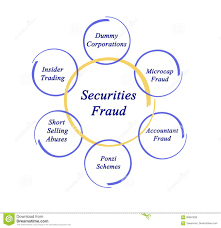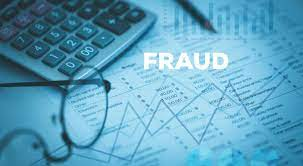
As securities law and investor education experts, we understand the complexities of securities fraud and how it can impact investors. This article will provide a comprehensive overview of securities fraud and its various forms. In addition, we aim to help you understand what securities fraud is, how it works, and how to protect yourself from falling victim to it.
What is Securities Fraud?
Securities and investment fraud, or investment fraud, occurs when an individual or a company deceives investors to make a profit. This is to avoid fraud, including misrepresenting financial information, omitting essential facts about an investment product’s products, or making false statements about investments. Securities and investment fraud can take many forms, including insider trading, Ponzi schemes, pump-and-dump schemes, and accounting fraud.
Insider Trading:
Insider trading occurs when someone with non-public information about a company’s finances or operations uses that information to buy or sell securities. This can result in unfair advantages for the insider and losses for other investors.
Ponzi Schemes:
Ponzi schemes are fraudulent investment schemes where returns are paid to investors from the capital invested by new investors by investment advisers. The returns promised by investment advisers are usually high, and investors are lured into investing more money. Eventually, the scheme collapses, and investors lose their money.
Pump and Dump Schemes:
Pump and dump schemes involve artificially inflating the price of a stock through false or misleading statements. Once the price has risen, the fraudsters sell their shares, causing the price to plummet and leaving other investors with significant losses.
Accounting Fraud:
Accounting fraud occurs in financial markets when a company misrepresents its financial information, such as revenue, expenses, or assets. This can result in a false picture of the company’s financial health, leading investors to make unwise investment decisions.
How to Protect Yourself from Securities Fraud:
Research before investing is the best way to protect yourself from securities fraud. Always investigate the investment opportunity and the people behind it. Be wary of unsolicited investment offers and promises of guaranteed returns. Instead, don’t be afraid to ask questions and seek advice from a trusted financial advisor.
Conclusion: Securities fraud is a severe crime with significant financial consequences for investors. Understanding the various forms of securities fraud and taking steps to protect yourself can reduce your risk of becoming a victim of internet fraud and report scams. Remember always to do your research and seek professional advice before investing.

Insider Trading: Insider trading is when individuals use non-public information to buy or sell securities, which gives them an unfair advantage over other investors. This information can include anything from a company’s financial data to its plans and can come from company insiders such as executives or employees. Insider trading is illegal and can result in fines, imprisonment, and other penalties.
Ponzi Schemes: Ponzi schemes are fraudulent investments in which returns are paid to investors from the capital invested by new investors instead of from actual profits. The scheme’s promoter will promise high returns and encourage investors to bring in more people to support. Eventually, the scheme will collapse when there are not enough new investors to pay out returns. Ponzi schemes can be challenging to detect, resulting in significant financial losses for investors.
Pump and Dump Schemes: Pump and dump schemes involve fraudsters artificially inflating the price of a stock through false or misleading statements, causing it to become overvalued. They then sell their shares at the inflated price, causing the price to plummet and leaving other investors with significant losses. These schemes are common tactics often promoted through spam emails, message boards, web sites, or social media.
Accounting Fraud: Accounting fraud is when a company misrepresents its financial information, such as revenue, expenses, or assets. This can be done in several ways, such as overstating profits or hiding debts. Accounting fraud can be challenging to detect, and investors may not discover it until it is too late. It can result in significant financial losses for investors and damage the company’s reputation.
In conclusion, understanding the various forms of securities fraud and how to protect yourself and send money to avoid fraud is crucial in today’s investment world. Therefore, always conduct thorough research, ask questions, and seek advice from a trusted financial advisor before investing. By taking these precautions, you can minimize your risk of falling victim to securities fraud and protect your investments.

Other types of securities fraud awareness prevention tips
Other types of securities fraud include market manipulation, high-yield investment programs, and other internet investment scams and fraud. Market manipulation is when fraudsters create a false impression of supply and demand for a particular stock or security, leading to an artificially inflated or deflated price. High-yield investment programs are fraudulent schemes that promise high returns, often using complex and misleading investment strategies. Finally, the fight against Internet investment scams and investment fraud usually involves fraudsters utilizing the Internet to solicit and deceive investors into investing in fraudulent schemes.
To protect yourself from securities fraud, it is important to be vigilant and conduct thorough research before investing.
Here are some tips:
Conduct background checks:
Research the company, its executives, and other financial statements for information. Check if the companies or financial markets are registered with the Securities and Exchange Commission (SEC) or other regulatory bodies.
Beware of unsolicited offers:
Be cautious of offers that come through unsolicited emails, social media accounts, or phone calls. Legitimate investment opportunities usually come through reputable financial advisors or brokers.
Watch for red flags:
Be alert for red flags and common scams, such as guaranteed returns, high-pressure sales tactics, or promises of free tools and quick profits. If it sounds too good to be true, it probably is.
Read the fine print:
Always read the investment agreement or prospectus thoroughly before investing. Ask questions about anything that you do not understand.
Use a reputable financial advisor:
Work with a financial advisor with a good reputation and a solid track record of helping clients make money and make sound investments.
By being aware of the different types of securities fraud and taking the necessary precautions, you can protect yourself from becoming a victim of fraudulent investment schemes. Remember that investing comes with risks, but by doing your due diligence, you can minimize those risks and make sound investment decisions.
CoopBusiness is a revolutionary cooperative business-building platform that empowers individuals to become entrepreneurs, business owners, and financially independent.
As a member, you’ll receive top-level business mentorship, access to our proprietary business systems, and the opportunity to access the funds you want to turn your business ideas into reality.